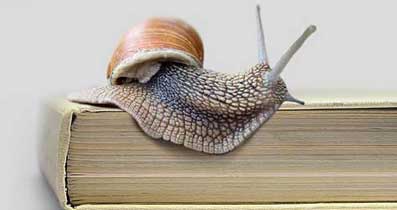
> Карта страницы
Поиск
> Творчество:
Книги
Переводы
Аудио
Суета
> Публицистика:
Off-line интервью
Публицистика АБС
Критика
Группа "Людены"
Конкурсы
ВЕБ-форум
Гостевая книга
> Видеоряд:
Фотографии
Иллюстрации
Обложки
Экранизации
> Справочник:
Жизнь и творчество
Аркадий Стругацкий
Борис Стругацкий
АБС-Метамир
Библиография
АБС в Интернете
Голосования
Большое спасибо
Награды
 | ||
| ||
|
ARKADY AND BORIS STRUGATSKY
Arkady (1925-1991) and Boris (1933-2012) Strugatsky were highly influential Soviet-Russian science fiction writers who often collaborated on their fiction and who rose to prominence despite Soviet censorship. Their most famous work is the novel Roadside Picnic (1971; English translation 1977), which was later adapted by Andrei Tarkovsky as the famous cult film Stalker (1979). The Strugatskys have proven especially iconic to many Russian and Eastern European fans and writers, many of whom grew up with their writing. The brothers also championed Soviet-era science fiction through Macmillan's English-language Soviet science fiction line of the 1980s, which featured the work of the Strugatskys but also fiction from many other Russian and Ukrainian writers.
Arkady Strugatsky was born in Batumi but grew up in Leningrad, leaving only during the brutal siege of 1942, his flight ending in the death of the brothers' father. He served in the Soviet army and became proficient in English and Japanese at the Military Institute of Foreign Languages. From 1955 on, he worked as a writer and in 1958 he started to collaborate with his brother. Unlike Arkady, Boris Strugatsky stayed in Leningrad during the siege and then became an astronomer and computer engineer. Literary influences on the Strugatsky brothers include Stanislaw Lem, who tended toward satire and societal commentary.
Soviet censorship was also a recurring issue for the brothers that sometimes shaped their fiction: some of their works did not appear in print until after the fall of the USSR. And, in their fiction, over time, relatively optimistic views of the future and of humanity would give way to dystopias, alienation, and a cynicism about human institutions. Censorship could be a problem even when writing seemingly innocuous works.
According to Boris's 1999 memoir, Comments on the Way Left Behind, the brothers in the late 1960s turned to a mystery romp because it had become "pretty obvious that any serious work of ours had no chances whatsoever of being published any time soon. We forced ourselves to be cynical. There came a point when we had either to sell ourselves, or abandon writing entirely, or become cynics – that is to learn how to write well but for money."
Yet, to their surprise, the comic novel The Dead Mountaineer's Inn caused problems because it was too apolitical. "It turned out that our editors wished there were some struggles in the novel- class struggle, struggle for peace, struggle of ideas, just anything." Three years later, they would publish Roadside Picnic, after a period of writer's block in part caused by this prior interference by the Soviet censors.
"The Visitors" is the second, stand-alone part of a three-part novella later expanded into a novel. The first part describes an encounter with an alien by a military expedition and the third part is in effect the account of an alien abduction. "The Visitors" first appeared in English in the anthology Aliens, Travelers, and Other Strangers (1984) but has been retranslated for this volume.
// The Big Book of Science Fiction. – New York: Vintage Crime/Black Lizard; Vintage Books; A Division of Penguin Random House LLC, 2016. – P. 354.
|